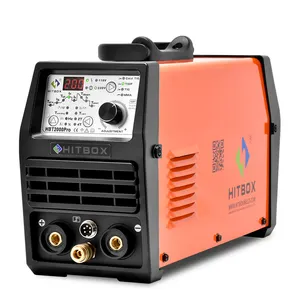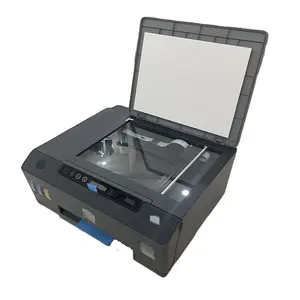Popular in your industry

















































Top categories
About tig welding material
TIG welding material includes a range of components essential for the Tungsten Inert Gas welding process. The TIG welding setup typically involves a TIG welder, shielding gas, a Tungsten welding electrode, and a filler material. The TIG welding process utilizes a non-consumable tungsten electrode to create the weld. The electrode, often made of pure tungsten, is a critical component in the TIG welding process. The filler material, commonly in the form of TIG welding rods, is used to reinforce the weld joint. TIG welding is a versatile welding technique commonly used in various industries, including automotive, aerospace, and manufacturing.
Advantages of TIG welding materials
TIG welding materials offer several advantages over other welding processes. The TIG welding process produces high-quality, clean welds with excellent aesthetics. The control and precision provided by TIG welding make it suitable for welding thin materials, intricate joints, and critical components. Additionally, TIG welding is versatile and can be used to weld a wide range of materials, including stainless steel, aluminum, and titanium. The use of a filler material for TIG welding allows for customization of the weld joint, enhancing strength and durability. Furthermore, TIG welding is a relatively clean process, as it does not produce spatter, making post-weld cleanup easier. The ability to weld in various positions, including overhead and vertical, adds to the flexibility of TIG welding.
Applications of TIG welding materials
TIG welding materials find applications across different industries due to the process's versatility and ability to produce high-quality welds. In the aerospace industry, TIG welding is used to join materials in the fabrication of aircraft components, including fuselages, engine parts, and exhaust systems. The automotive industry utilizes TIG welding for manufacturing exhaust systems, fuel tanks, and precision components. In the construction sector, TIG welding is employed in the fabrication of architectural structures, pipelines, and pressure vessels. The use of TIG welding for welding titanium, often referred to as TIG welding titanium, is prevalent in the medical industry for manufacturing surgical implants and equipment. TIG welding is also utilized in the fabrication of food and beverage processing equipment due to its ability to create hygienic welds.
Materials compatible with TIG welding
The TIG welding process is compatible with a wide range of materials, making it a versatile choice for various applications. TIG welding is commonly used for welding stainless steel due to its ability to produce clean, precise welds with minimal distortion. Aluminum and its alloys are also compatible with TIG welding, making it a popular choice for industries requiring lightweight and corrosion-resistant welds. TIG welding can be used for welding titanium, a material known for its high strength-to-weight ratio and biocompatibility. The ability to weld thin materials, known as TIG welding thin aluminum, makes it suitable for applications where heat control is crucial, such as in the electronics industry. TIG welding is also utilized for welding carbon and low-alloy steels in various structural and industrial applications.




























